13 Best Neurology Hospital in India
Our nervous system is a highly complex part of the body and comprises of brain, spine and all types of nerves. The clinical or surgical interventions to treat ailments of brain & spine are as complex, if not more. The branch of medicine that deals with treatment of neurological disorders and diseases is known as Neurology.
Some of the nervous system complications arise due to birth defects (Congenital disorders) while others due to hereditary reasons or a trauma/injury. There are various sub-specialties that come under neurology, such as Neuroradiology, neurorehabilitation, interventional neurology, neuro-immunology and many others.
Neurosurgery involves operations on brain and spinal cord by a qualified specialist (Neurosurgeon) to treat neurological conditions such as tumors, stroke, aneurysm, etc.
Several new techniques and pioneering methods have been introduced over the past decades to optimize the safety of the neurological procedures and to treat previously untreatable diseases.
The next-generation technology have enabled surgeons to perform the operations on brain and spine with more precision and accuracy, significantly improving the clinical outcomes of such interventions.
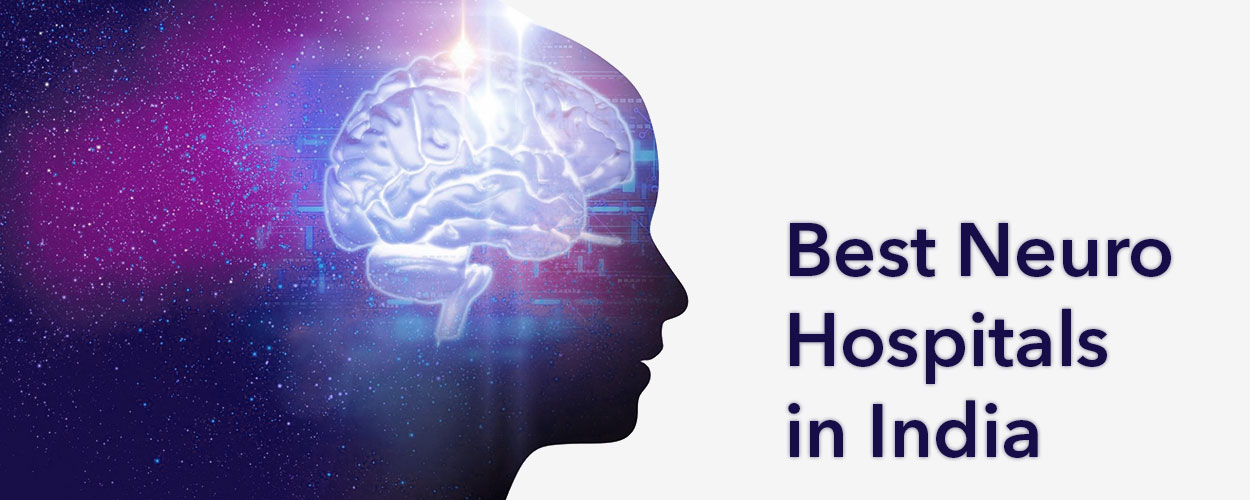
- The terms “neuron” (which means “nerve”) and “logia” (which means “the study of”) are combined to form the name “neurology. The area of medicine known as neurology is dedicated to understanding and treating nervous system problems.
- The nervous system controls and synchronizes bodily functions in a sophisticated and complex manner. It is divided into two main groups: the peripheral nervous system and the central nervous system.
- Psychiatry and oncology are related to neurology, however have a varied basis.
- Neurological conditions include conditions that impact the muscles, peripheral nerves, neuromuscular junctions, multiple sclerosis, spinal cord, and brain.
- A neurologist can treat a wide range of conditions, including stroke, amyotrophic lateral sclerosis, Alzheimer’s disease, headache, epilepsy, Parkinson’s disease, sleep disorders, multiple sclerosis, brain traumas, spinal cord injuries, back pain, and peripheral nerve diseases.
- The neurological problems that affect newborns, young children, and adults frequently vary. Pediatric neurologists treat patients under the age of 18 who have neurological issues. Cerebral palsy, severe metabolic diseases, epilepsy, learning difficulties, and illnesses of the nerves and muscles are among the conditions that afflict children.
- Neuro-oncology is a significant clinical subspecialty of neurology that deals with the treatment of individuals with primary brain tumors, metastases, and the neurologic side effects of cancer.
- After reviewing the patient’s medical history, a neurological examination is performed to evaluate the patient’s reflexes, coordination, mental condition, sensibility, and strength.
Here are 13 Best Neuro Hospitals in India:
Sector - 44, Gurgaon, Haryana - 122002
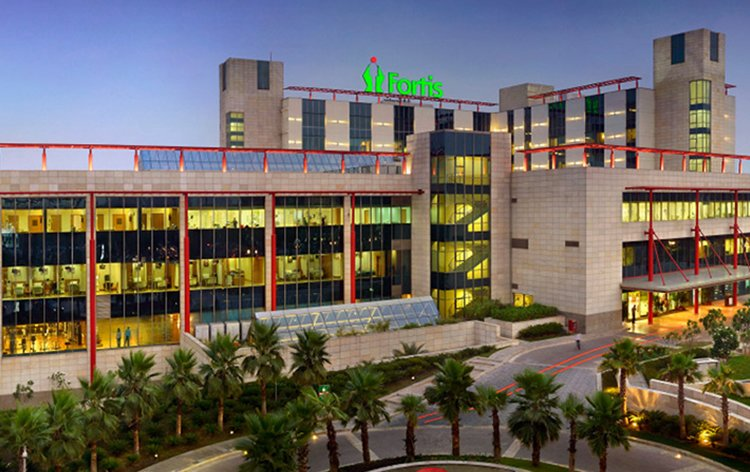
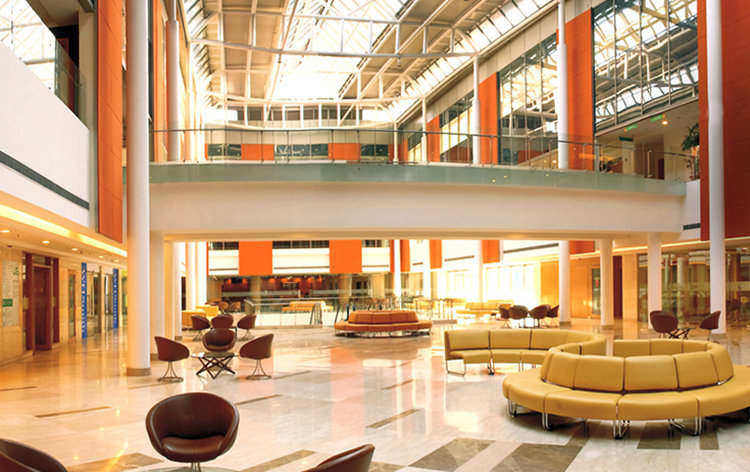
No. of Beds: 1000 Beds
- FMRI is a premier multi-specialty hospital quaternary care hospital with world class infrastructure and international standard of medical services and facilities.
- It is a top neuro hospital in India with Neurosciences being a ‘Centre of Excellence’ and comprising of Departments for Interventional neuroradiology, Neurology and Neurosurgery.
- The department of neurosurgery is one of the best and offers services like neurovascular surgery, spinal surgery, paediatric neurosurgery, neuro-oncology, deep brain stimulation for movement disorders, functional and stereotactic neurosurgery. The hospital has some of the best neurosurgeon in India working at this department.
- The services offered at the Neurology department includes management and assessment of multiple sclerosis, management of epilepsy, brain stroke and several other neurological disorders.
- The hospital has the latest and advanced technologies including Leksel stereotactic system, Gamma Camera with SPECT (Single photon emission computed tomography), Interventional Radiology Suite, to name a few.
- Interventional Neuroradiology Department uses minimally invasive procedures for the treatment of cerebrovascular diseases like lesions of the brain and spine through an endovascular approach.
Specialists
- Dr. Sandeep Vaishya
- Dr. Rana Patir
- Dr. Praveen Gupta
Sector 38 Gurugram, Haryana - 122001
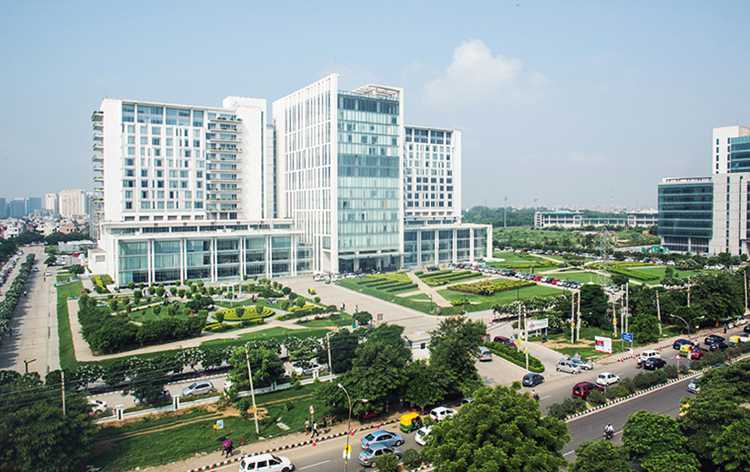
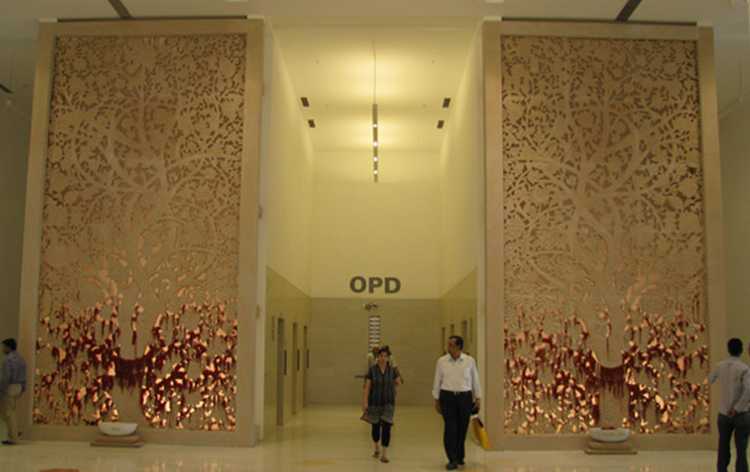
No. of Beds: 1250
- Medanta – The Medicity is a forerunner healthcare service provider offering quaternary care across its 29 super specialties.
- The Institute of Neuroscience at Medanta is a ‘Center of Excellence’ equipped with the latest technological advancements to maximize the clinical output and ensure patient satisfaction.
- Some of the most updated technology used for neurosurgery at Medanta include CyberKnife Robotic Radiosurgery system, ‘Brain Suite’ – Miyabi intra-operative Theatre with MRI which is one of its kind set-up in the country, and Intraoperative O-arm spine suite, Biplane Cath lab and advanced neuro-imaging techniques.
- The panel of expert neuro-specialists at this hospital are world-renowned neurosurgeons and neurologists who are highly qualified and trained in the advanced techniques and procedures of neurosciences.
- The Medanta Comprehensive Stroke Center has an integrated and robust system for the management of all kinds of strokes including Ischemic Strokes, TIA (Mini Stroke or warning signs), Acute Stroke, Repeat Stroke and Hemorrhagic Stroke, adult and pediatric strokes.
Specialists
Near Unitech Cyber park, Sector 51 , Gurgaon, Haryana - 122001
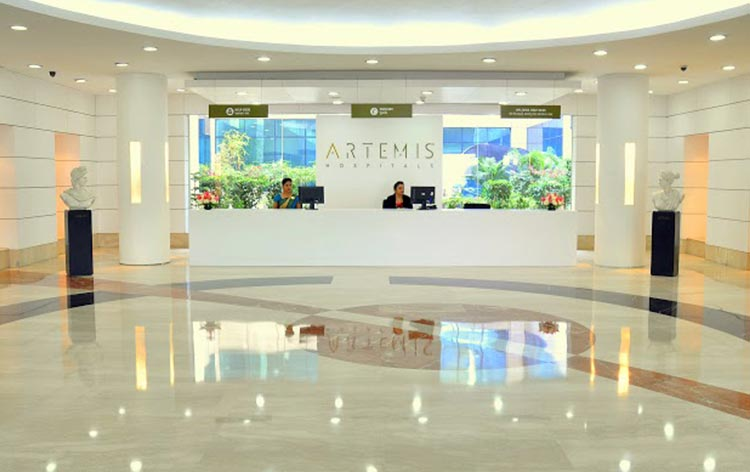
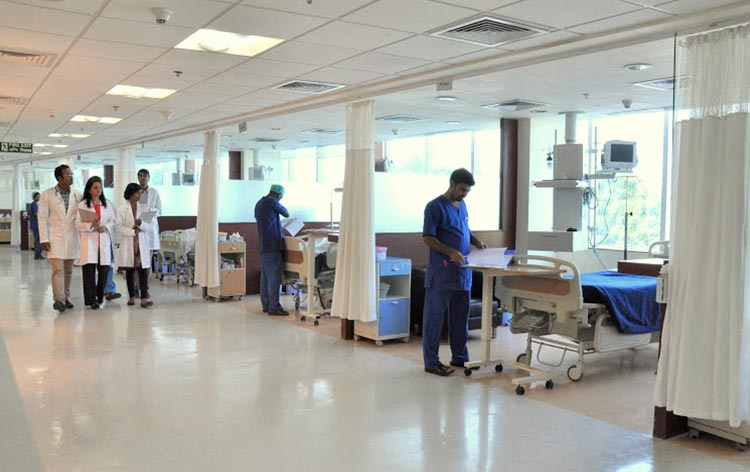
No. of Beds: 400
- Artemis Hospital is a world-class super-specialty hospital with JCI accreditation, state-of-the-art infrastructure and cutting-edge technology.
- The Artemis Agrim – Institute of Neurosciences is one of the centers of Excellence of the hospital.
- The center offers a comprehensive range of services and facilities for neurosurgery including brain tumor surgery, skull base surgery, deep brain stimulation, spine surgery, radiosurgery, surgery for epilepsy, minimally invasive spine surgery and many others.
- The team of dedicated doctors at Artemis is expert specialists with years of experience and training in advanced treatment procedures.
- The latest technology for diagnostics and therapeutic care are available at this hospital to ensure the patients receive reliable treatment. M6 Cyberknife Radiosurgery technology available at Artemis Hospital is one of the most advanced technologies in the world for cancer treatment
- The neurology and interventional neurology services offered at Artemis are wide-ranging, including pediatric neurology, intracranial stenting, spinal angiogram and management of stroke, epilepsy, multiple sclerosis and other neuromuscular disorders.
Specialists
- Dr. Aditya Gupta
- Dr. S K Rajan
- Dr. Vipul Gupta
Press Enclave Road, Saket, New Delhi - 110017
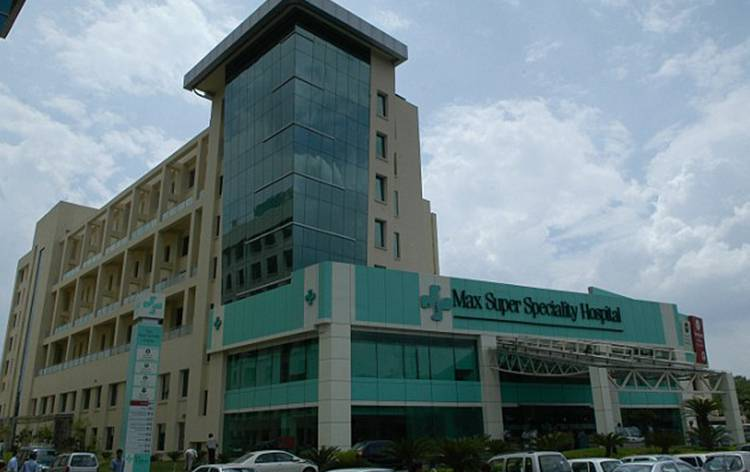
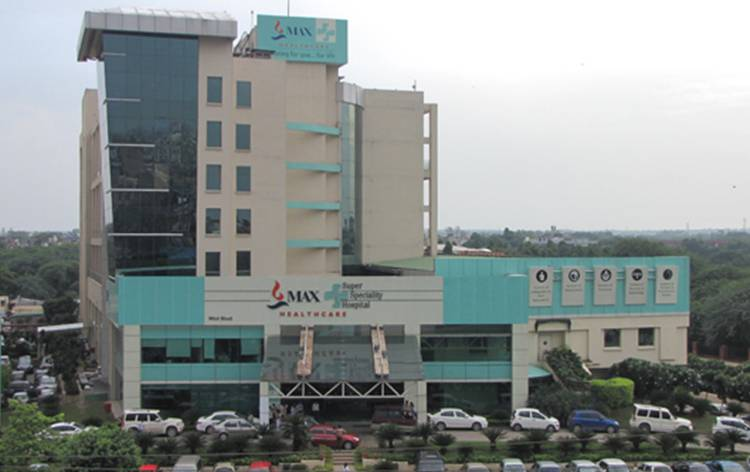
No. of Beds: 500+
- Max Super Specialty Hospital, Saket is one of the top neurology hospitals in India. It is a state-of-the-art medical facility with national and international accreditations like JCI and NABH.
- The Max Institute of Neurosciences makes this hospital one of the best neurosurgery hospitals in India where a wide range of services and facilities are offered for neuro patients.
- This centre of excellence at Max is equipped with the most updated technologies like BrainSuite intraoperative OT with MRI image guidance which allows precise surgery for brain tumors and other operations. Other latest equipment like neuro-navigation system, stereotaxy, High-end microscope for surgery to name a few, are available at this Neurosciences centre.
- A dedicated team of experienced and skilled specialists including neurosurgeons, neurologists, interventional neuroradiologists and pediatric neurologists practice at Max.
- There are special centres for Epileptic, Neuromuscular and movement disorders along with advanced brain tumour centre and Endoscopic surgery.
Specialists
- Dr. (Col.) Joy Mukherjee
- Dr. Rajshekhar Reddy
- Dr. Arun Saroha
- Dr. Bipin Walia
- Dr. Puneet Aggarwal
Sarita Vihar, Delhi-Mathura Road , New Delhi - 110076
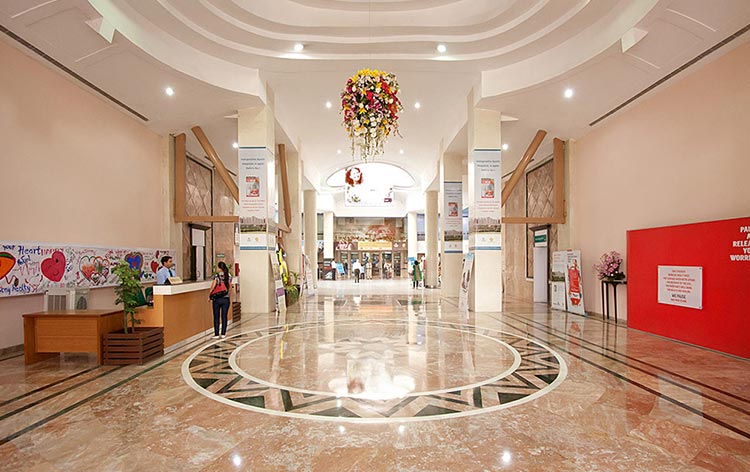
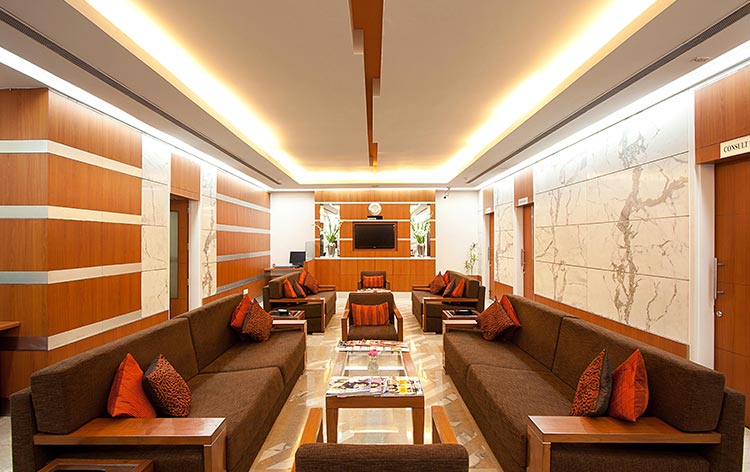
No. of Beds: 700
- The Apollo Institute of Neurosciences is an integrated center of excellence offering services in various specialties – Neurosurgery, Neurology, Interventional Neurology, Neuro-psychology, Neurophysiology, Neuro Anesthesia and neuro-rehabilitation
- The centre is equipped with latest technologies including BrainLab Navigation System and Neuroradiology unit with Digital Subtraction Angiography (DSA), 64 Slice CT, 3T MRI for accurate diagnosis.
- The hospital offers special services for Stroke Programme, Comprehensive Epilepsy Programme, Movement disorder Programme, Pain management, Neuropsychology.
- The globally renowned neuro specialists at Max are amongst the best neurologist in India and have years of experience in their field of expertise.
Specialists
- Dr. Sudhir Tyagi
- Dr. Rajendra Prasad
- Dr. Rakesh Aggarwal
Get Free Assistance for Best Neuro Hospitals in India
Sector - 18, Dwarka, New Delhi - 110075
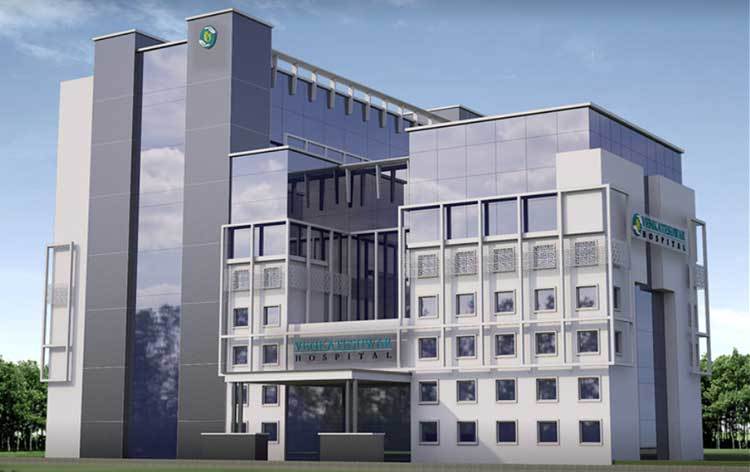
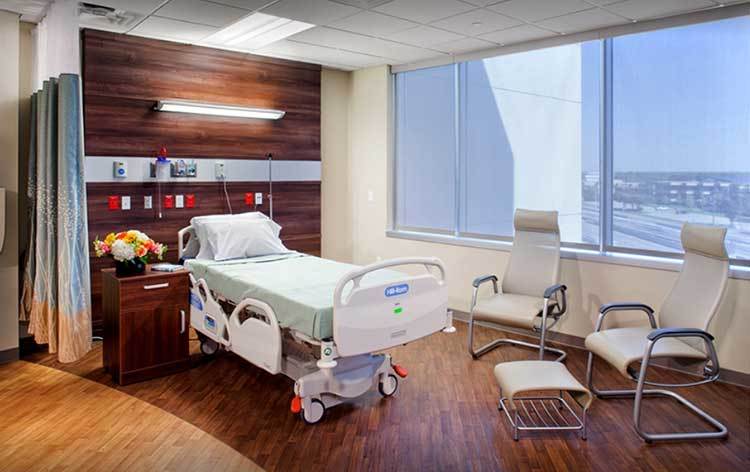
No. of Beds: 325
- Venkateshwar Hospital is one of the premier super-specialty tertiary care medical facilities in Delhi with world-class infrastructure and clinical excellence.
- The neurology and neurosurgery department at this hospital are state-of-the-art facilities offering services and have a dedicated team of neurologists, neurosurgeons, pediatric neurologists, neurophysiologists and interventional neuro-radiologits.
- The latest diagnostic instruments available at Venkateshwara include 256 Slice CT Scan, Neck and Head Ultrasound, 3 Tesla MRI and equipment for Neurophysiologic studies including EEG and EMG.
- A comprehensive range of services are offered by Neurology and Neurosurgery department – stroke management, treatment of neuromuscular diseases, management of Multiple sclerosis along with surgical interventions like Minimally Invasive and Endoscopic Neurosurgery, Microsurgical excision of brain tumours, skull base surgery, stereotactic surgery and many others.
Specialists
- Dr. P K Sachdeva
- Dr. Rahul Sharma
- Dr. Dinesh Sareen
Pusa Road, Rajendra Nagar, New Delhi - 110005
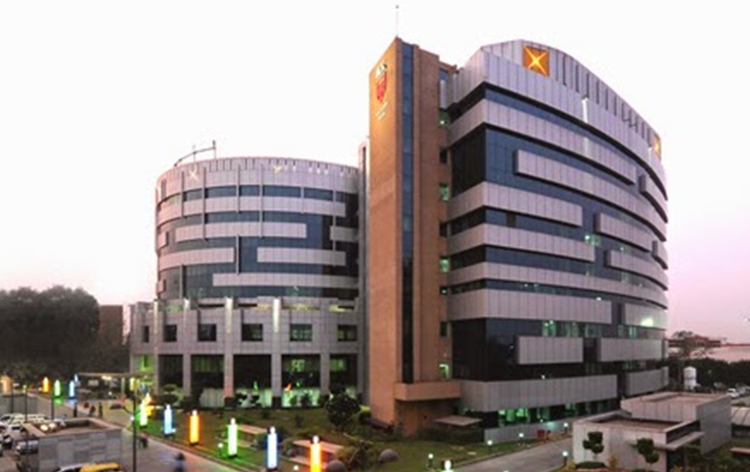
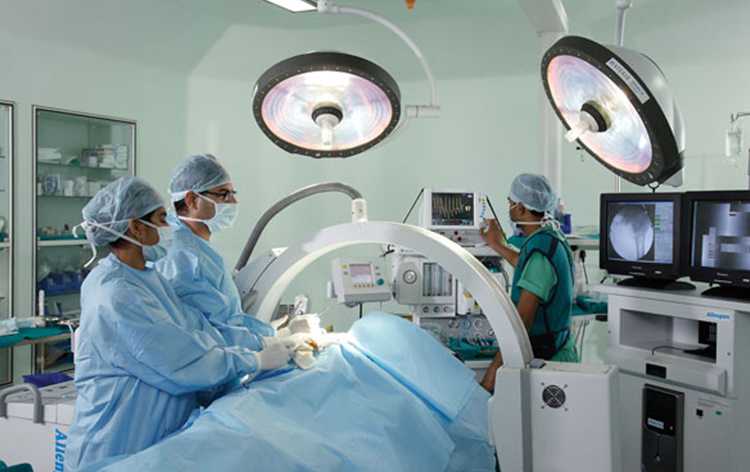
No. of Beds: 650
- BL Kapur Super Specialty Hospital is one of the top tertiary care hospitals in Delhi offering a wide range of medical services across multiple specialties.
- BLK Center of Neurosciences is one of the best brain hospital in India with specialized units for Advanced Aneurysm Treatment Unit, Minimally Invasive Spine Surgery Unit – Neuro Spine Surgery Unit, Neuro-endoscopy Unit, Functional Neurosurgery Unit, Stroke Unit.
- The centre has Cyberknife treatment for brain tumors and vascular surgery which is one of the world’s latest technological advancements.
- The highly skilled and qualified panel of doctors in this department are experts of different subspecialties Neurologist, Best Neurosurgeons, Neuro-oncologists, Neuro-anesthetist and Neuro-critical specialists.
Specialists
- Dr. Anil Kumar Kansal
- Dr. Rajiv Anand
- Dr. Atul Prasad
Greams Lane, Off. Greams Road , Chennai,Tamil Nadu - 600006
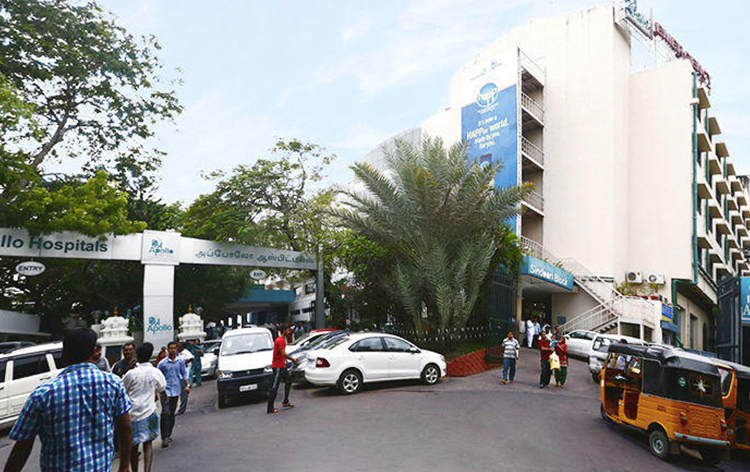

- Apollo Hospitals, Greams Road is the flagship hospital of the Apollo Group Southern Region and one of the best hospitals in Chennai.
- It is the best neurology hospital in Chennai and is credited for launching the first fully functional Advanced Centre for Movement Disorders in South India.
- The Apollo Institute of Neurosciences at Chennai is a centre of excellence of the hospital and an integrated unit with services including Neuroradiology, Neuro ICU, Medical and Radiation Oncology services for treatment of brain and spine tumor.
- The hospital has some of the latest technologies of the world for brain and spine surgery like Cyberknife, Stereotactic Radiosurgery, Robotic Neurorehabilitation, Surgery for Stroke/Stroke Prevention, Micro – Neurosurgery and many more.
- The expertise and experience of the highly skilled neuro-specialists and neurosurgeons at Apollo Chennai ensure effective results and excellent clinical outcomes.
Specialists
- Dr Balasubramaniam S
- Dr Geetha Lakshmipathy
- Dr Balamurugan M
- Dr Chandrasekar K
- Dr Siddhartha Ghosh
Rao Saheb Achutrao Patwardhan Marg, Four Bunglows, Andheri (West), Mumbai – 400053
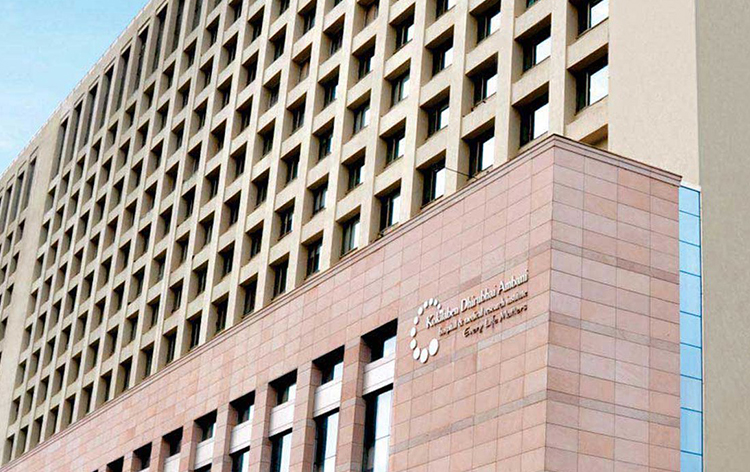
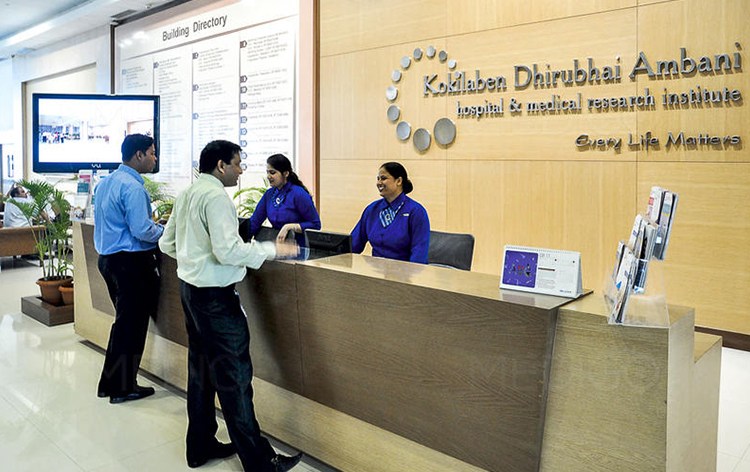
No. of Beds: 750
- Kokilaben Dhirubhai Ambani Hospital is amongst the list of top neurosurgery hospitals in India and is the only hospital in Mumbai with four accreditation – JCI, CAP (USA), NABH and NABL.
- The hospital is a world-class medical centre built with an international standard of infrastructure and equipped with the most updated medical equipments.
- The Centre for Neuroscience is a state-of-the-art facility which combines high-tech facilities with a patient centre approach to optimize the clinical outcomes.
- The centre is equipped with advanced technology for neuroimaging such as 128 channel Intraoperative EEG, IMRIS intraoperative imaging, ZEISS OPMI Pentero Microscope and Neuronavigation system
- The hospital is considered one of the best neurosurgery hospitals in India and is equipped with some of the world’s latest technology for brain surgery, like Cavitron Ultrasonic Aspirator (CUSA), Leksel stereotactic system and Novalis TX(Stereotactic Radiosurgery).
Specialists
- Dr. Mohit Bhatt
- Dr. Abhaya Kumar
- Dr. Hrishikesh Sarkar
DLF Phase - III, Sector 24 , Gurgaon, Haryana - 122002
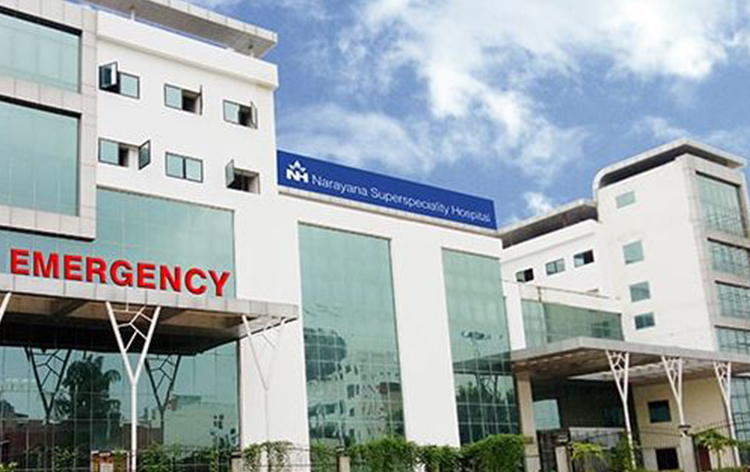
No. of Beds: 215
- Narayana Health is a leading healthcare service providing group in India and Narayana Super Specialty Hospital in Gurgaon is one of their flagship hospitals.
- The hospital offers a wide range of clinical services for domestic as well as international patients. Narayana provides a combination of world-class infrastructure, latest technology and instruments in the field of medicine along with a team of expert specialists, all in one place.
- The department of Neurology cater to a wide variety of neurological disorders and offer services for epileptic care, cerebral stroke along with evaluation and management of complex neuromuscular disorders.
- There are well-established units for subspecialties like Neurorehabilitation for acute smooth recovery of neurological patients and Interventional Neurology for treatment of problems like paralytic strokes, brain aneurysms, stenting and embolization.
- The Neurosurgery department has modular operating rooms, special neurosurgical intensive care unit and neuro-rehabilitation program to help patients recover and resume normal lifestyle after surgery.
Specialists
- Dr. Deepu Banerjee
- Dr. Sahil Kohli
- Dr. Anurag Saxena
Sector 6, Dwarka , New Delhi - 110075
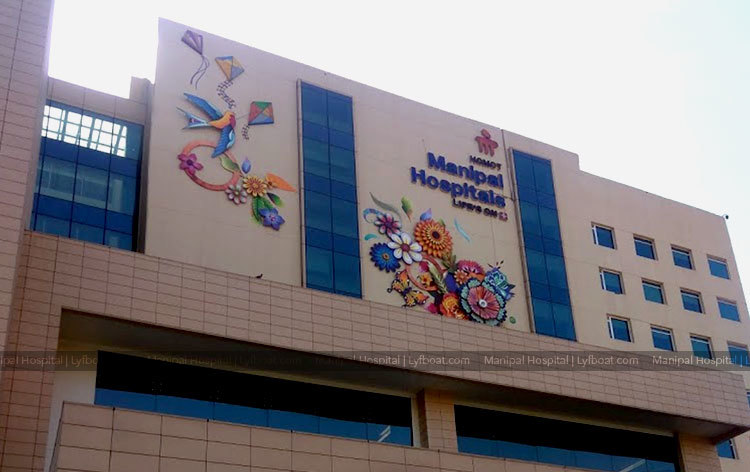
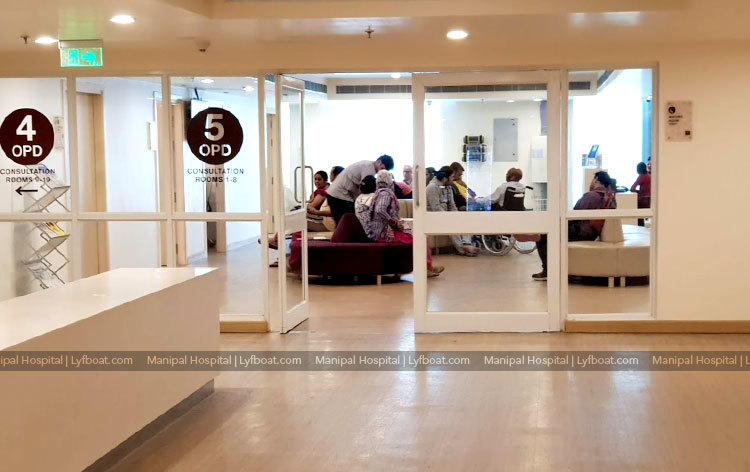
No. of Beds: 380
- Manipal Hospital at Dwarka, New Delhi is a premier multi-specialty healthcare facility with a comprehensive range of medical services and facilities.
- The departments of neurology and neurosurgery at Manipal Hospital are state-of-the-art facility with cutting edge technology and a dedicated team of specialists.The department offers special programs for sub-specialties like stroke management, epilepsy treatment and movement disorders along Neuro-immunology and advanced Neurophysiology lab.
- The advanced diagnostic equipment at the department like 3-Tesla MRI, 128-slice CT scan, PET-CT along with minimally invasive neurosurgical equipment ensure that the patients receive reliable treatment at Manipal.
Specialists
- Dr. Kadam Nagpal
- Dr. (Lt. Gen) C S Narayana VSM
- Dr. Vikas Gupta
Kengeri , Bengaluru, Karnataka - 560060

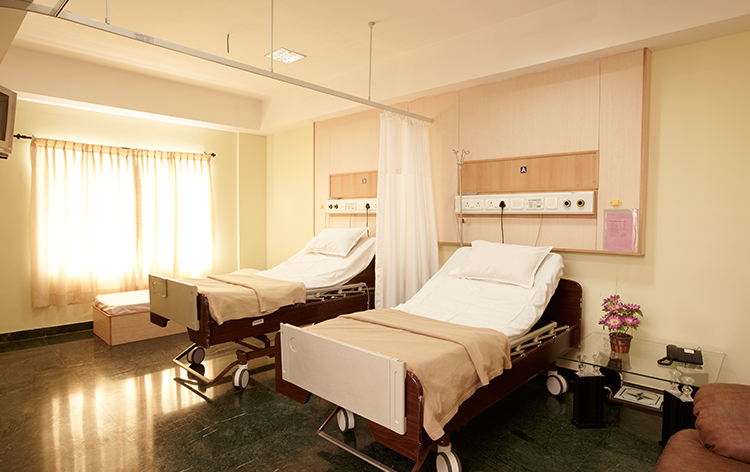
No. of Beds: 500
- BGS Gleneagles Global Hospital is one of the best hospitals in Bangalore and offers international standard of clinical care across its multiple specialties.
- The hospital is a part of IHH Healthcare, one of the largest integrated healthcare groups and has been accredited by NABH, NABL and HALAL for its clinical excellence.
- The Neurology and Neurosurgery departments are world-class centres equipped with advanced technology and offer a wide array of services for treatment of basic to complex neurological ailments.
- The expert team of neurologists and surgeons at BGS Gleneagles Hospital are renowned specialists with global reputation and expertise in the latest techniques.
Specialists
- Dr Madhusudhan B K
- Dr Kishore Rao
- Dr Prathap Kumar Pani
The Umrao IMSR Near Railway Station, Mira Road (E) Dist. Thane, Mumbai, Maharashtra - 401107
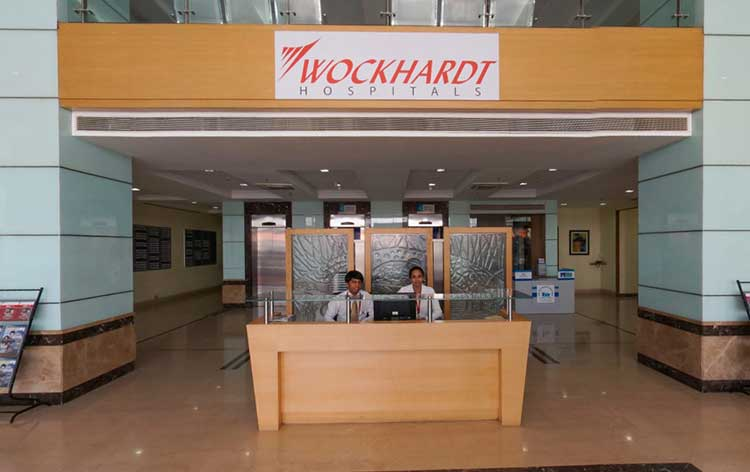
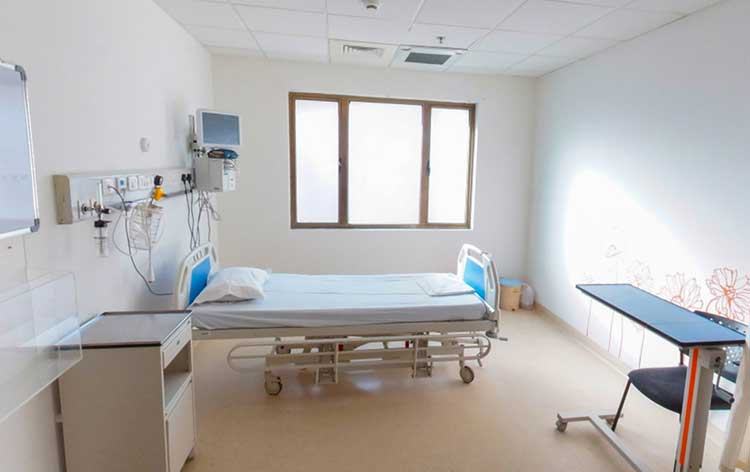
No. of Beds: 350
- Wockhardt Hospital, Mira Road is one of the best hospitals in Mumbai and has a partnership with Partners Medical International, Boston, USA and the international arm of the Harvard Medical School, USA.
- The hospital caters to a wide spectrum of domestic as well as international patients across all the major specialties and subspecialties.
- The Brain and Spine Centre at Wockhardt offers medical treatment for the entire spectrum of neurological diseases and neuromuscular disorders.
- The centre has a multidisciplinary team of highly skilled neurologists and neurosurgeons along with medical support staff to deliver the best possible treatment to the patients.
Specialists
- Dr. Aaditya Kashikar
- Dr. Pandurang Reddy M.
Importance of Neurology
Neurology is a fascinating and quickly expanding subject that combines knowledge from science, technology, medicine, and engineering to produce practical solutions that benefit common people. The future and our understanding of ourselves and society are being built by those who study the brain.
Signs & Symptoms
The six indications are that a neurologist appointment is necessary.
- Strong or persistent headaches– Make an appointment with a neurologist for those who suffer from migraines, especially if the symptoms are linked to neurological impairments or previous therapies have failed.
- Enduring pain should be considered for getting referred to a neurologist if the pain is chronic and the general physician is unable to help manage it because there may be another underlying explanation for the symptoms.
- Dizziness– Vertigo (the sensation that you are spinning) or trouble balancing could be symptoms of a more serious condition.
- Numbness or tingling may indicate a stroke or other serious disease, especially if it just affects one side of the body or appears quickly.
- Movement issues– Walking difficulties, shuffling feet, tremors, and involuntary jerks are all potential symptoms of nervous system issues.
- Issues with memory or confusion– Word muddles, personality changes, or worsening memory issues could all be symptoms of Alzheimer’s disease.
Evaluation
For both standard and challenging neurological diseases, a neurologist can assist in determining the cause of symptoms and developing a treatment strategy.
Instruments like lights and reflex hammers may be used during a neurological exam to evaluate the nervous system. Testing may also be done on the motor abilities, equilibrium, coordination, and mental state.
One difficult ailment that may be best managed by a neurologist is multiple sclerosis (MS). There are numerous subtypes of MS, and recent years have seen a substantial change in available therapies.
Patients might benefit from the experience of a neurologist who is up to date on the latest research and treatment options for MS and other neurological diseases.
What happens during a neurological exam?
The neurologist will go over the medical background, giving close attention to the issue one is currently dealing with.
The next step is an examination, which normally assesses your reflexes, sense of touch, hearing, smell, and hearing capacity as well as your eyesight, strength, coordination, memory, reasoning, and ability to solve puzzles.
Test outcomes will assist the neurosurgeon in determining if the issue is related to the nervous system or the brain. To confirm a diagnosis or choose the most appropriate course of therapy for the patient, more tests could be required.
What are some of the most common neurological disorders?
- Alzheimer’s Disease
- Amyotrophic Lateral Sclerosis (also called ALS or Lou Gehrig’s disease)
- Brain and Spinal Cord Injuries
- Brain Tumors
- Cerebrovascular Diseases
- Epilepsy
- Headaches and Migraines
- Parkinson’s Disease
- Multiple Sclerosis
- Neuromuscular Diseases
- Peripheral Nerve Disorders
- Sleep Disorders
- Spinal Disorders
- Stroke
- Tremors
Frequently Asked Questions
Q. Who are neurologists?
A: The medical specialty of neurology focuses on conditions that affect the brain, as well as the spinal cord, nerves, muscles, and other parts of the brain.
Q. When should you see a nephrologist?
A: When a patient exhibits signs and symptoms of conditions affecting the brain, spinal cord, peripheral nerves, or muscles, a neurologist’s opinion is necessary.
Long-lasting symptoms should be evaluated by a neuro doctor, such as prolonged or severe headaches. Body-wide, persistent pain that is not related to the skeleton. a feeling of unsteadiness or balance issues. chronic tingling or numbness in the hands, feet, wrists, etc. mild tremors or persistent muscle twitching. Memory issues, jumbled thoughts, and erratic trains of thought.
Q. How are neurological conditions treated?
A: A variety of conditions are treatable. Each illness requires a distinct course of treatment or symptomatic relief. Neurologists will conduct and interpret examinations of the brain or nervous system to determine therapy choices. Patients with neurological illnesses may retain the highest quality of life through treatment.
Q. Is it true that all neurological illnesses are incurable?
A: The quality of life is negatively impacted by neurological illnesses, which can even be fatal. Many therapy outcomes are dependent on the causes of the disease, even if the majority are still incurable. Many symptoms can be reduced or even eliminated in some situations with the help of cutting-edge medical techniques and palliative care.
Q. Which disorders are usually treated by neurologists?
A: Stroke, brain hemorrhage, brain tumor, multiple sclerosis, migraine, epilepsy, Parkinson’s disease, dementia, myasthenia gravis, Guillain Barre syndrome, myosotis/myopathy, muscular dystrophies, etc. are common conditions for which a neurologist’s opinion is necessary.
Q. What are the regular symptoms of neurological disorders?
A: Headaches, convulsions/fits, memory loss, sudden loss of vision, double vision, slurred speech, swallowing difficulty, facial asymmetry, weakness in one half of the body (commonly referred to as paralysis), weakness in both hands or both legs, trembling in the hands, tingling or numbness in the hands or legs, and difficulty walking are just a few of the symptoms that can accompany neurological disorders.
Q. Why is a neurological evaluation necessary for patients?
A: When a general practitioner wants a specialist’s opinion about a patient whose symptoms could be related to the brain or nervous system, an examination is required. In cases where a patient requests a second opinion from a neurologist, the examination may also be carried out. The patient can receive an accurate diagnosis and therapy for neurological illnesses thanks to the neurologist’s experience in conditions affecting the brain and nervous system.
Q. What diagnostic procedures are used for neurological examinations in India?
A: Diagnostic procedures used in neurological examinations include nerve and muscle biopsies, MRIs, CAT scans, EEGs, EMG/NCVs, x-rays, and blood tests. The neurology team creates appropriate treatment regimens for the greatest results based on the diagnosis.
Q. What function does the spine have in neurological conditions?
A: With the assistance of nerve fibers and neural tissue, the spine connects the limbs and lower body to the brain. Neurological diseases can result from any spinal injury and vice versa. Neurological problems with a long-term and severe impact may result from spinal cord abnormalities.
Q. Mental or neurological disorders vs one another?
A: Central or peripheral nervous system dysfunction or injury is the primary cause of neurological diseases. Mental illnesses or disorders are manifestations of disrupted behavioral issues and emotional concerns.
Q. What is the difference between a neurologist and a neurosurgeon?
A: The majority of the disorders that require surgery on the brain or spinal cord are dealt with by neurosurgeons. Examples include giant brain tumors, brain hematomas (blood clots), and head injuries. The neurologist administers medication to treat ailments rather than performing brain surgery.
Q. What distinguishes a psychologist from a neurologist?
A: Psychological problems including schizophrenia, depression, and mania are what a psychiatrist typically treats. In psychiatric problems, the brain’s anatomical normality is common, but the mind is to blame.
Q. Can neurological disorders be present with psychiatric symptoms?
A: Yes. Initial signs of psychological illness, such as a change in behavior or symptoms like sadness, can be present in many neurological conditions. Later, when the patient begins to experience other symptoms like headaches or weakness, a neurological condition like a stroke or brain tumor is discovered.
Q. Are neurological diseases treatable?
A: Yes, medicine can be used to treat the majority of neurological problems. However, for the same, a proper diagnosis and prompt treatment are required. There are, however, a few neurological conditions for which there is now no known treatment; however, medications can be used to lessen the severity of these diseases’ symptoms, allowing patients to live healthy lives.
Q. What exactly is a stroke?
A: A stroke is a condition when one experiences abrupt onset weakness in one side of the body as a result of either blocked or ruptured blood arteries in the brain.
Q. What causes a stroke?
A: When a blood clot in a blood vessel causes the blood supply to the brain to suddenly stop or if the blood vessel ruptures due to high pressure, it results in a decreased supply of oxygen and nutrients to the brain, which makes the part of the body supplied by the injured brain weak or paralyzed.
Q. How to identify a stroke?
A: When a patient suddenly experiences numbness or weakness in one side of the body, a facial deviation, slurred speech, an inability to communicate or understand what is being said to them, an imbalance of the body, double vision, difficulty swallowing, or a change in voice, they are frequently otherwise perfectly normal.
Q. What exactly is stroke thrombolysis?
A: In order to dissolve the blood vessel clot and restore normal blood flow to the brain in stroke victims, thrombolysis is a procedure that involves administering medicine through blood vessels. But you can only do this for the first 4.5 hours after a stroke.
Q. Why is early identification of stroke symptoms important?
A: Early detection of stroke symptoms is crucial, as is getting the patient to a hospital with a neurologist and thrombolysis equipment as soon as feasible. This is due to the fact that thrombolysis can only be performed within the first 4.5 hours following the onset of stroke symptoms.
Q. What exactly is a migraine?
A: Migraine is a condition in which the patient experiences unpleasant headache attacks repeatedly coupled with accompanying symptoms like nausea, vomiting, visual disturbances, and an inability to tolerate loud noises or bright lights.
Q. Can migraines be cured?
A: Although migraine cannot be cured, it is easily managed if the patient takes their prescribed drugs on a regular basis and makes specific lifestyle and dietary changes.
Q. What exactly is epilepsy?
A: Epilepsy is a condition in which a patient experiences fit or convulsion episodes repeatedly as a result of abnormally excessive brain discharges.
Q. Is epilepsy curable?
A: If the patient follows the doctor’s recommendations for regular medication, epilepsy can be cured.
Q. How does epilepsy surgery work?
A: Epilepsy surgery is a procedure used in limited cases of epilepsy where a specific spot or focus of the condition can be located in the brain. In epilepsy surgery, the spot that triggers seizures or convulsions is removed.
Q. Can one stop taking medications after epilepsy surgery?
A: Surgery for epilepsy is performed to end seizures, not to stop taking drugs. However, many individuals who undergo epilepsy surgery can stop taking their medications within a few years.
Q. What exactly is multiple sclerosis?
A: Multiple sclerosis is a condition marked by recurrent episodes of inflammation in the brain and spinal cord, which can cause a patient to experience a variety of neurological symptoms and, if left untreated, result in permanent disability.
Q. What are the symptoms of multiple sclerosis?
A: Multiple sclerosis can cause a variety of symptoms, such as weakness in one side of the body or both legs, visual loss in one or both eyes, tingling in the hands or legs, problems related to the urinary system, weariness, etc. If left untreated, the patient may experience recurrent bouts of these symptoms, which could eventually result in permanent disability.
Q. What exactly is Parkinson’s disease?
A: Parkinson’s disease is a condition that causes a patient to experience a variety of symptoms, including tremors, sluggishness in daily activities, trouble walking, stiffness in the hands and legs, etc.
Q. Does Parkinson’s disease have a cure?
A: Parkinson’s disease cannot be cured, but the majority of its symptoms can be managed with the right treatments, greatly enhancing a patient’s quality of life.
Q. Is Parkinson’s disease surgically treatable?
A: Yes, deep brain stimulation, or DBS, surgery can be used to treat some Parkinson’s disease patients.
Q. Why should you choose medical tourism in India for neurosurgery?
A: In India, the idea of medical tourism is not new. It’s a tradition that dates back many years. It refers to the act of traveling to another country for medical treatment.
Due to India’s affordable healthcare, the majority of patients choose to have complicated and costly surgery there rather than in their own country. If a patient has a tight budget but doesn’t want to sacrifice receiving high-quality care and medical aid, they frequently seek out neurology in India treatments and procedures.
For people traveling to India for medical treatment, there are a number of advantages to this practice.
Medical tourism is a popular choice among many patients due to its easy access to cutting-edge treatments and medical facilities, as well as its low labor costs and modern procedures. People search for affordable medical procedures and treatments all around the world.
Due to this, many patients around the world opt to travel for medical treatment. A recent study found that patients can save up to 85% of the cost of their neurological treatments by traveling to nations like India.
Q. What are the latest advancements in the field of neurology that have attracted overseas patients to India?
A: The ability of neurologists to diagnose and treat patients has made significant strides over the past ten years. Important diagnostic procedures like scans and sophisticated blood-based testing are now accessible across India.
The diagnostic precision has consequently improved. The therapeutic toolbox of neurologists has expanded dramatically over time. More and more illnesses are falling under the purview of treatment and modification.
Mainly, favorable changes are being made to neuro-immunological illnesses. In India, neurogenetics has also started to gain traction, and gradually, genetic abnormalities are being identified locally.
Indian doctors have access to a wide range of therapeutic treatments for neurological conditions.
